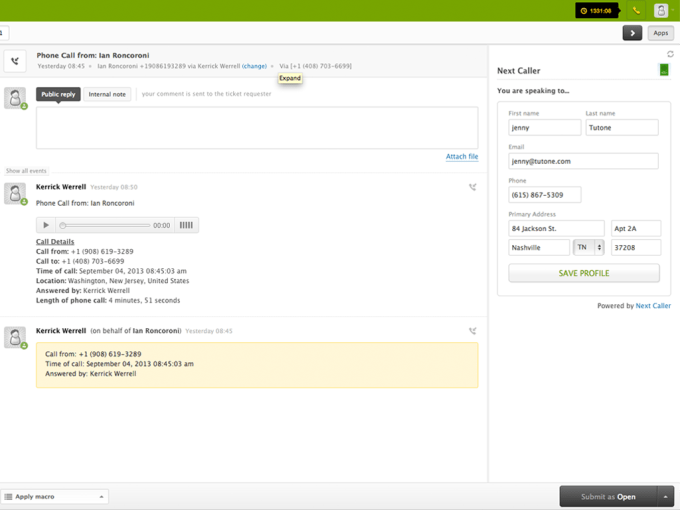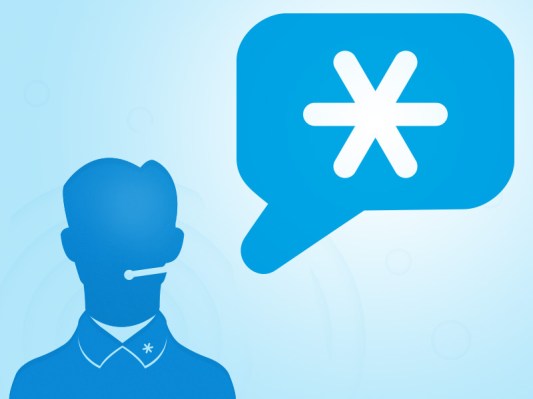Y Combinator-backed Next Caller, the makers of a caller ID system for businesses offering access to a secondary database containing a caller’s personal information — including their name, phone, number and, if available, email — has come a long way since its launch at TechCrunch Disrupt last fall. Since then, the company has grown from just a handful of users to 240 paying customers, and has now signed distribution deals with ZenDesk and Nextiva, who will offer the service to their existing install bases.
The company was co-founded a little over a year ago by Gianni Martire and Ian Roncoroni, who both have finance backgrounds; Martire is a computer science grad and serial entrepreneur with several startups already under his belt. But the idea for Next Caller came from Roncoroni, who was constantly frustrated with his phone calls to customer service agents who mangled his name.
“My last name is really confusing,” he explains. “I found myself spending a lot of time trying to convince people that my last name is actually just one name, and not two names: ‘Ron Coroni.'”
He thought it would be much easier if the call center agent just had his information in front of them when he was speaking with them, and thus the idea for Next Caller was born.
As it turned out, there was a definite need to be addressed here – the founders tell us that 61 percent of inbound calls to companies today are considered “unknown.”
Part of the problem is that the existing technology is outdated. For example, current caller ID systems don’t work with cell numbers, but Next Caller maintains a database linking U.S. phone numbers – cell or landline – to names, addresses and emails. The company claims it can identify 70 percent of the calls sent to its system, and, on average, it shaves off 40 seconds per call because of the data entry it eliminates on the business’s side.

Another problem businesses face is when calls are routed between multiple call centers, they’re often then sent somewhere that uses a different CRM system. That means you have to give the agent you’re transferred to your personal information for a second time, which is frustrating for both parties. Next Caller could help solve this problem, if all the company’s call centers have Next Caller integrated into their systems, however varied they may be.
The Next Caller API today integrates with a variety of existing systems, including Cisco, Avaya, Salesforce, Genesys, Five9, SAP, Zendesk and others. And now the Nextiva deal will see Next Caller offered to that company’s more than 80,000 business users in the U.S. who can switch the functionality on with just a check box.
Once installed, customer-service agents can save the personal data provided by Next Caller with just a click, copying it to their own local database.
Now that Next Caller has dealt with the immediate frustrations involving caller ID, it’s working to see what other solutions it can offer businesses and consumers going forward. One thing the team has in the works is a way to make “commerce by phone” as easy as it is online. Consumers will be able to enter their credit card info on Next Caller’s site, then existing Next Caller business customers would be able to use that data when selling a service or upgrade over the phone. The consumer would only need to confirm their info and provide a PIN.
After joining the current Y Combinator class, Next Caller has decided to become a bicoastal operation with one founder in San Francisco and another in New York. The company is currently a team of nine full-time and is closing a seed round of funding (details forthcoming).
